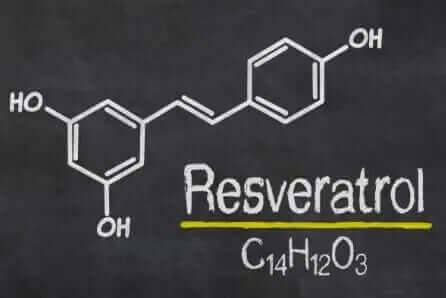Shorter Telomeres: The Hidden Impact on Your Health and Longevity
The connection between shorter telomeres and chronic health conditions has become a groundbreaking area of scientific research. These protective caps at the ends of our chromosomes play a crucial role in cellular aging and overall health. Understanding how lifestyle choices affect telomere length opens new possibilities for preventing disease and promoting healthy aging.
Understanding Shorter Telomeres and Their Role in Disease Development
Telomeres act as biological clocks, gradually shortening with each cell division. When telomeres become critically short, cells can no longer divide properly, leading to tissue dysfunction and age-related diseases. Recent research has established strong connections between shorter telomeres and various chronic conditions, offering hope that understanding these mechanisms could lead to innovative prevention strategies.
Multiple studies have documented the relationship between telomere length and cardiovascular disease, with shorter telomeres consistently appearing in patients with heart conditions. This pattern extends beyond heart health. Researchers have now identified similar associations with type-2 diabetes, suggesting that telomere length might serve as a biomarker for overall metabolic health.
The Complex Relationship Between Shorter Telomeres and Diabetes
The discovery that type-2 diabetes correlates with shorter telomeres raises fascinating questions about cause and effect. Scientists continue investigating whether shortened telomeres contribute to diabetes development or if diabetes accelerates telomere shortening. This chicken-and-egg scenario has profound implications for prevention and treatment strategies.
Current research primarily focuses on type-2 diabetes, leaving questions about type-1 diabetes and telomere length largely unexplored. This gap in knowledge presents opportunities for future studies that could revolutionize our understanding of autoimmune conditions and cellular aging.
Groundbreaking Research: How Your Beverage Choices Affect Telomere Length
A landmark collaborative study between UC San Francisco, UC Berkeley, and Stanford University revealed surprising connections between dietary choices and telomere health. This research specifically examined how different types of sweetened beverages influence the length of telomeres in blood cells, providing actionable insights for daily health decisions.
Study Design and Participant Selection
The researchers carefully selected healthy participants with no history of diabetes or cardiovascular disease, ensuring that results would reflect the direct impact of beverage consumption on telomere length. This approach eliminated confounding factors from existing health conditions, providing clearer insights into how dietary choices influence cellular aging.
Key Findings: Not All Sweet Drinks Are Created Equal
The study's results revealed distinct patterns based on beverage type:
- Sugar-sweetened sodas showed a significant association with shorter telomeres, suggesting accelerated cellular aging
- 100% fruit juice surprisingly correlated with longer telomeres, indicating potential protective effects
- Diet sodas showed no significant impact on telomere length, neither positive nor negative
These findings suggest that the type and source of sugar consumed plays a critical role in cellular health. Natural sugars found in fruit juice appear to affect the body differently than added sugars in sodas, possibly due to accompanying nutrients and antioxidants.

The Science Behind Sugar and Telomere Shortening
Understanding why sugar-sweetened beverages correlate with shorter telomeres requires examining the biological mechanisms at play. High sugar intake triggers several processes that can damage cellular health:
Oxidative Stress and Inflammation
Excessive sugar consumption increases oxidative stress throughout the body. This oxidative damage directly affects telomeres, which are particularly vulnerable to free radical damage. Additionally, high sugar intake promotes chronic inflammation, another factor known to accelerate telomere shortening.
Insulin Resistance and Metabolic Dysfunction
Regular consumption of sugar-sweetened beverages can lead to insulin resistance, creating a metabolic environment that accelerates cellular aging. This metabolic dysfunction creates a vicious cycle where shorter telomeres contribute to further metabolic problems, potentially explaining the link between telomere length and type-2 diabetes.
Practical Strategies to Protect Your Telomeres
Armed with this knowledge, you can make informed choices to support healthy telomere length and potentially slow cellular aging. Here are evidence-based strategies to implement:
1. Beverage Choices That Support Telomere Health
- Replace sugar-sweetened sodas with water, herbal teas, or sparkling water with fresh fruit
- When choosing fruit juice, opt for 100% pure juice without added sugars
- Limit juice consumption to small portions, as even natural fruit sugars should be consumed moderately
- Consider green tea, which contains antioxidants that may protect telomeres
2. Dietary Patterns for Telomere Protection
Beyond beverages, overall dietary patterns significantly influence telomere length:
- Embrace a Mediterranean-style diet rich in vegetables, fruits, whole grains, and healthy fats
- Include foods high in antioxidants like berries, leafy greens, and colorful vegetables
- Consume omega-3 fatty acids from fish, walnuts, and flaxseeds
- Minimize processed foods and added sugars across all food categories
3. Lifestyle Factors That Influence Telomere Length
Research shows that multiple lifestyle factors work synergistically to protect against shorter telomeres:
- Regular Exercise: Both aerobic and strength training activities support telomere health
- Stress Management: Chronic stress accelerates telomere shortening; meditation and yoga show protective effects
- Quality Sleep: Aim for 7-9 hours of restorative sleep nightly
- Social Connections: Strong relationships and community ties correlate with longer telomeres
Telomerase Activation: A Promising Approach
While lifestyle modifications provide the foundation for telomere health, scientific advances have identified compounds that can activate telomerase, the enzyme responsible for maintaining and lengthening telomeres. This discovery opens exciting possibilities for those seeking to actively support their cellular health.
One particularly promising option is TA-65, a telomerase activator derived from the astragalus plant. Research suggests that telomerase activation could help counteract the effects of lifestyle factors that contribute to shorter telomeres, offering a complementary approach to dietary and lifestyle changes.
Creating Your Personal Telomere Protection Plan
Developing a comprehensive strategy to prevent shorter telomeres involves combining multiple approaches:
- Assess Your Current Habits: Identify sources of added sugar in your diet, particularly from beverages
- Make Gradual Changes: Replace one sugary drink at a time with healthier alternatives
- Track Your Progress: Keep a beverage diary to monitor your intake and celebrate improvements
- Build Support Systems: Share your goals with family and friends who can encourage your journey
- Consider Supplementation: Explore evidence-based options like telomerase activators as part of a comprehensive approach
The Future of Telomere Research and Health
As our understanding of telomeres expands, new opportunities emerge for preventing age-related diseases and promoting healthy longevity. Current research explores connections between telomere length and conditions ranging from cancer to neurodegenerative diseases, suggesting that protecting our telomeres could have far-reaching health benefits.
The discovery that simple dietary choices like avoiding sugar-sweetened sodas can influence telomere length empowers individuals to take control of their cellular health. This knowledge transforms everyday decisions into opportunities for promoting longevity and vitality.
Taking Action: Your Next Steps
Understanding the impact of shorter telomeres on health provides motivation for positive change. Start by examining your current beverage choices and identifying opportunities for improvement. Remember that small, consistent changes often lead to the most sustainable results.
Consider having your telomere length tested to establish a baseline and track improvements over time. This objective measure can provide additional motivation and help you assess the effectiveness of your lifestyle modifications.
Frequently Asked Questions About Shorter Telomeres
What exactly are telomeres and why do they shorten?
Telomeres are protective DNA sequences at the ends of chromosomes, similar to plastic tips on shoelaces. They naturally shorten with each cell division as part of the aging process. Environmental factors like stress, poor diet, and lack of exercise can accelerate this shortening. When telomeres become critically short, cells can no longer divide properly, contributing to aging and disease development.
How do shorter telomeres specifically relate to chronic diseases?
Research has established strong correlations between shorter telomeres and various chronic conditions including cardiovascular disease, type-2 diabetes, and certain cancers. Shortened telomeres may contribute to disease development by limiting cellular regeneration and repair capabilities. This relationship appears bidirectional, with some diseases also accelerating telomere shortening, creating a cycle that can be interrupted through lifestyle interventions.
Can telomere length be accurately measured?
Yes, telomere length can be measured through specialized laboratory tests using blood samples. These tests typically compare your telomere length to others of the same age, providing a biological age assessment. Regular testing can track changes over time, helping evaluate the effectiveness of lifestyle modifications and interventions designed to protect telomere health.
What is the most effective way to prevent shorter telomeres through diet?
The most effective dietary approach combines multiple strategies: eliminating sugar-sweetened beverages, increasing antioxidant-rich foods, consuming omega-3 fatty acids, and following a Mediterranean-style eating pattern. Focus on whole, unprocessed foods while minimizing added sugars and inflammatory foods. Remember that consistency matters more than perfection, and gradual changes often lead to lasting results.
How quickly can lifestyle changes impact telomere length?
Studies suggest that positive lifestyle changes can influence telomere length within months to years. Some research shows measurable improvements in telomerase activity within just three months of comprehensive lifestyle modifications. However, significant changes in actual telomere length typically require sustained effort over longer periods. The key is consistency and combining multiple beneficial practices for optimal results.
Are telomerase activators safe and effective?
Telomerase activators like TA-65 have shown promising results in research studies, with evidence suggesting they can support telomere maintenance and potentially slow cellular aging. Safety profiles appear favorable in published studies, though individual responses may vary. As with any supplement, consult with healthcare providers and choose products from reputable sources with scientific backing.
Can children and young adults benefit from telomere protection strategies?
Absolutely! Establishing healthy habits early in life provides the greatest long-term benefits for telomere health. Young people who avoid sugar-sweetened beverages, maintain active lifestyles, and manage stress effectively can preserve their telomere length and potentially prevent premature cellular aging. Early intervention creates a strong foundation for lifelong health and may help prevent chronic diseases decades later.
What role does exercise play in preventing shorter telomeres?
Exercise provides powerful protection against telomere shortening through multiple mechanisms. Regular physical activity reduces oxidative stress, improves cellular repair processes, and may increase telomerase activity. Both aerobic exercise and strength training show benefits, with studies suggesting that moderate, consistent activity provides optimal results. Aim for at least 150 minutes of moderate exercise weekly, combining different types of movement for comprehensive benefits.
How do stress and sleep affect telomere length?
Chronic stress significantly accelerates telomere shortening by increasing cortisol levels and oxidative damage. Poor sleep quality similarly impacts telomere health by disrupting cellular repair processes. Implementing stress management techniques like meditation, deep breathing, or yoga, combined with prioritizing 7-9 hours of quality sleep nightly, creates a protective environment for telomere maintenance. These lifestyle factors work synergistically with dietary choices to support cellular health.
Is there a genetic component to telomere length?
While genetics influence baseline telomere length, lifestyle factors play the dominant role in determining how quickly telomeres shorten over time. Studies of identical twins show that lifestyle choices can create significant differences in telomere length despite identical genetic starting points. This means that regardless of genetic predisposition, everyone can benefit from adopting telomere-protective habits. Your choices matter more than your genes when it comes to cellular aging.






